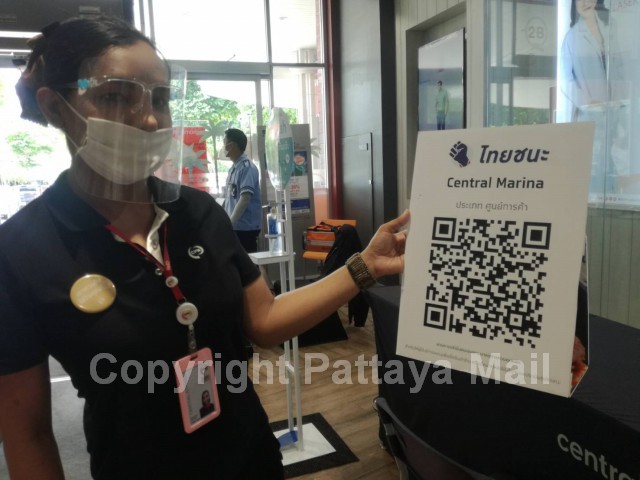
The latest technology is not tailor-made for all of Pattaya’s remaining aged and ageing expat population. A week ago, many of them had never heard of the Thai Chana QR system which is fast becoming the norm when you want to go shopping in malls and supermarkets. Of course, it’s a tracing system for possible coronavirus sufferers, put in place and strongly advocated by the Thai government.
“I’ve never owned a mobile phone,” said Manchester-born retiree Ron, “so whenever anyone asked for my cell number I thought they were asking if I’d been in prison.” So far he has avoided any problems by using the alternative method of manually writing your name and phone number on a sheet of paper. But he worries that this escape avenue will soon be closed off. “Some people are writing ridiculous names such as Adolf Hitler or Pontius Pilate, followed by the phone-in number of their local pizza parlour.” Ron claims most of his friends are far from computer-savvy.
On the other hand, Russian elite card holder Alex has a smartphone and the Line app which is a popular way of registering your contact details. But he has his doubts. “If there is an outbreak of Covid-19, there will be thousands of names and phone numbers, but so what? Presumably we will all get an SMS message telling us to get tested if possible.” He doubts the testing centres in the area could cope with the sudden avalanche of worried patients.
Khun Off, a Thai security officer who helps Thais and foreigners register at a leading Pattaya mall, said, “Mostly, the foreigners are hesitant and they need help because the Thai Chana system is in the Thai language. The main complaint we have is that mall visitors have to register not only at the entrance, but also in many of the individual shop units as well.” But he added that customers these days should expect the virus pandemic to be taken seriously with a wide variety of health and safety precautions. “Farang need to come up to date,” he muses.
Perhaps the fundamental point is that Thai Chana is one more illustration of how smartphones are fast becoming unavoidable in daily life. The next stage is likely to be air travel. There will be a shift to touchless travel, the end of traditional ticket scanning and a new health safety regime supported by digital tools such as the Known Traveller Digital Identity Initiative. Without your mobile phone to upload and respond to requests for personal information, you will have no chance to fly anywhere. There is speculation that traditional passport will be replaced first by a biometric card and later by chips inserted in the human body.
To avoid unhealthy long queues at the boarding gate, passengers will receive an SMS when it is their turn to approach the final control area. The days of touchscreen entertainment on board are numbered as the area is a likely hiding place for bacteria and viruses. You will likely use your own personal device to watch videos, assuming there’s a USB and power outlet by your seat. Not to mention non-technological novelties such as having to raise your hand to use the loo and watch in-flight janitors keeping lavatories clean.
In a matter of weeks, the coronavirus pandemic has shuttered the global economy and placed capitalism in intensive care. Its impact on daily life is only now beginning to have an effect. But we ain’t seen nothing yet.




